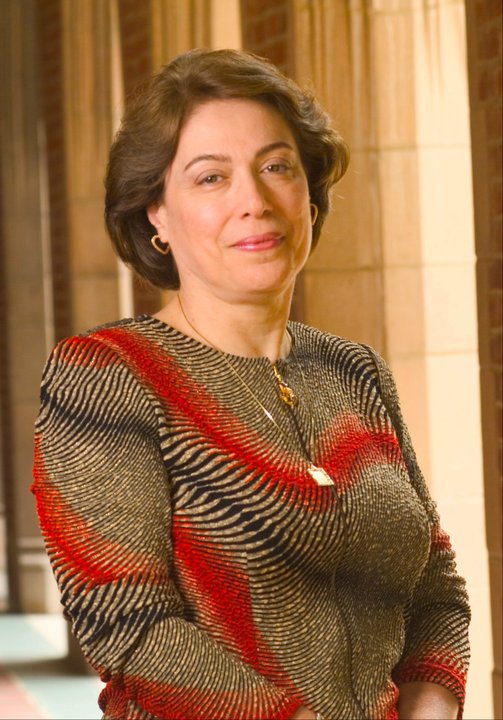The Lilith Blog 1 of 2
February 13, 2013 by Tara Bognar
Sisters in Law
February’s ABA Journal ran an excellent article by Kristin Choo about Muslim women practicing law in the United States and abroad.
These women are looking to their interpretations of Islamic scripture and tradition to fight inside and outside: inside to justify their work to Muslims who do not agree that women should have a voice in the legal tradition, and outside to be taken seriously by a mainstream culture that makes many harmful assumptions about Muslims and especially Muslim women’s roles.
Azizah al-Hibri (who wrote “My Muslim Ancestor Hagar” for Lilith in 1997) is a law professor who founded Karamah: Muslim Women Lawyers for Human Rights. “The chief mission of Karamah is to develop new Islamic jurisprudence from a women’s and human rights perspective, looking with fresh eyes at Islamic religious texts and traditions, re-examining passages and translations, and researching the historical context in which they originated to uncover a faith stripped of patriarchy…the development of new Islamic jurisprudence and the development of a network of jurists trained to apply these new ideas.”
As a Jewish lawyer, feminist, and student of Jewish law, I found this article and the spirit conveyed fascinating and exciting. I wonder whether the idea of developing a new Islamic jurisprudence feels as tremendously ambitious to al-Hibri as the idea of a new Jewish jurisprudence sounds to me. I do not know enough about Muslim law to know whether the idea itself is as groundbreaking and potentially destabilizing in Islam as it promises to be in Judaism, but I am inspired.
On the Jewish side, women who are working within the confines of Orthodoxy tend to speak in much more circumspect terms than a ‘new jurisprudence.’ Arguably, the work of yoatzot, women trained in family purity law who answer other women’s practical legal questions, toanot, women lawyers in Israel trained in Jewish law who represent clients in the Beth Din, and programs like Project Eden in New York, that advocate for ultra Orthodox women in secular court and liaise with their rabbinic court, are doing that very work. Programs like Yeshivat Hadar, Drisha, the Conservative Yeshiva, Pardes, and even Yeshivat Maharat, as well the various liberal Rabbinical schools, are producing women who trained in Jewish law, some of whom may bring a more openly feminist agenda to Jewish jurisprudence.
I love the assumption that a Muslim woman who is a lawyer in the United States or somewhere else will also be knowledgeable and involved in Muslim law. That is not something I would begin to take for granted among American Jewish lawyers, women or no. Jewish tradition in America has a (wonderful, in my opinion) strong secular component that has undermined that possibility, along with popular liberal Jewish movements that put much less focus on Jewish law in general. Suzanne Last Stone is a prominent scholar of Jewish and secular law who approaches gender in the law from an apparently more traditional perspective. (The challenge of being both a lawyer and a Jewish scholar is daunting however, in an age where the job markets for both are not hugely promising).
Interestingly, the two groups of American women with the highest rates of college degrees are Jewish American women (58%) and Muslim-American women (42%), although for now Muslim women are much less likely to go into law than Jewish women. Still, if the broader American Muslim community maintains its focus on its legal tradition in a way that American Jews have not, and more Muslim women go into law, al-Hibri’s goal seems plausible, if optimistic.
 Please wait...
Please wait...

Pingback: On Lilith: Sisters In Law | Tara Bognar